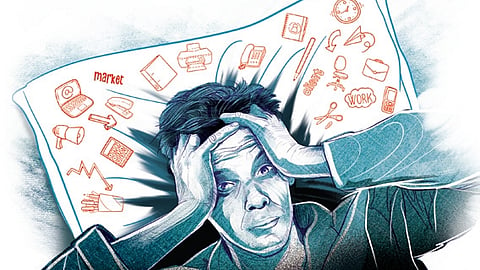

BENGALURU: Bengaluru residents are struggling with sleep deprivation, with 56% individuals reportedly getting less than six hours of uninterrupted sleep each night, revealed a recent survey conducted by LocalCircles ahead of the World Sleep Day (March 14).
The survey titled- ‘How India Sleeps 2025,’ which gathered responses from 5,563 individuals in the city, highlights a growing concern about poor sleep quality and its potential health risks.
Among those surveyed, 47% reported sleeping only 4-6 hours per night, while 9% managed even less than four hours. As per the findings, only 3% of respondents received the recommended 8-10 hours of sleep.
The survey found that the most common reason for sleep interruptions was waking up to use the washroom. This was followed by late bedtimes and early morning household schedules, mobile calls and notifications, and external disturbances like noise.
Partner or child-related interruptions and uncomfortable bedding also contributed to disturbed sleep. Moreover, 17% of respondents stated that they simply couldn’t sleep for eight hours straight, even without specific disturbances.
To compensate for their sleep deficit, people in their responses mentioned that they take afternoon naps on Sundays, extend their sleep hours on weekends, and try to recover lost rest on holidays. However, about 28% admitted they are unable to make up for their lack of sleep at all, leading to long-term sleep deficits.
The study linked sleep deprivation to a higher risk of cardiovascular diseases, weight gain, type 2 diabetes, and impaired cognitive function. The findings underscore the urgent need for better sleep hygiene and increased awareness about sleep-related health risks among Bengaluru’s residents.
A similar trend was observed across India, with 59% of respondents reporting less than six hours of uninterrupted sleep. The survey gathered over 43,000 responses from 348 districts nationwide indicate that 61% of respondents were men and 39% were women.